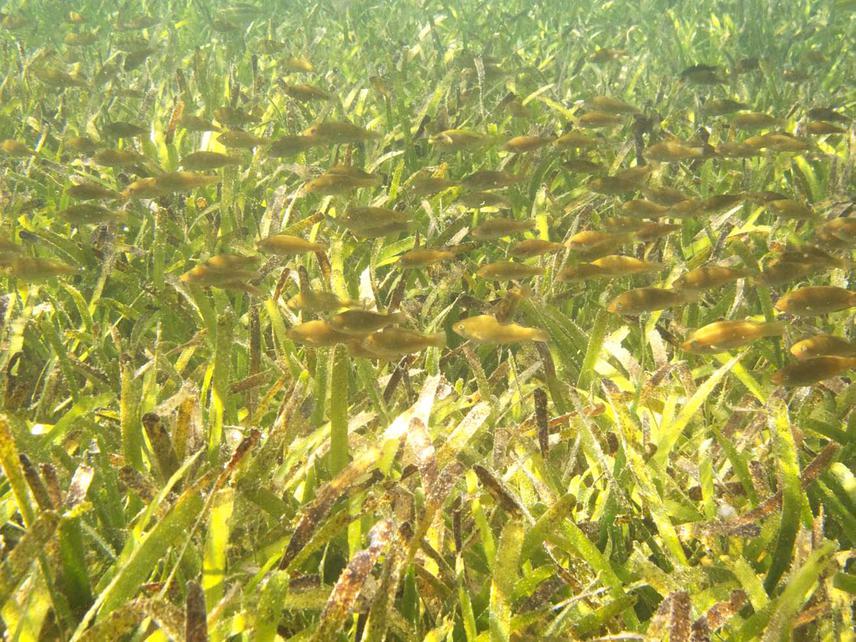Nachiket Kelkar
Other projects
23 Jan 2013
Long-Term Tracking of Conflict between Green Turtles and Fishers by Community-Based Seagrass Monitoring in the Lakshadweep Islands, India
Baseline data on fish community structure across the Lakshadweep islands, and information on abundance, distribution and habitat use of fish species, under varying intensities of seagrass grazing by green sea turtles will be obtained. This is being done to study potential impacts of sea turtles on fish availability, which are suspected to have caused negative attitudes towards turtles in recent years.

Seagrass meadows are important habitats for many marine fish species, for shelter, food and juvenile recruitment. Fisheries in tropical coastal environments depend considerably on such nursery areas. Ecosystem modifiers (like green turtles) can affect seagrass meadow dynamics through herbivory and may affect fish availability, in turn conflicting with local fisheries. Recent studies on green turtles off the Agatti island in Lakshadweep, show that herbivory caused substantial alterations in seagrass meadow structure, species composition and growth rates. Implications of such modifications are reflected in negative attitudes of local fishermen towards turtle conservation and the legal ban on hunting. This conflict results from perceived decline in fish-catches from seagrass meadows that contribute to local subsistence-fishing and bait for tuna-fishing.
As the work on green turtle herbivory has been limited to one island, we propose to expand the scope of this project to other islands as well, in order to generate baselines of fish abundance and habitat usage under differential grazing conditions and wider spatial scales. We propose to generate baseline data on fish abundance and habitat usage across a gradient of turtle grazing pressure and human resource-use in nearshore habitats (seagrass meadows, coral reefs, bare sand habitats) of the Lakshadweep islands, India. The focus is on seagrass meadows, while the surrounding reef-associated habitats are studied for their ‘source-function’; because juveniles of many reef fish species use seagrass meadows. This study plans to investigate mechanisms of conflict operating through the abundance and distribution of seagrass-dependent fish species. Understanding responses of fish to seagrass meadow changes can help inform strategies for collaborative conflict management involving dependent fisher communities, and mitigating turtle-fisher conflict.